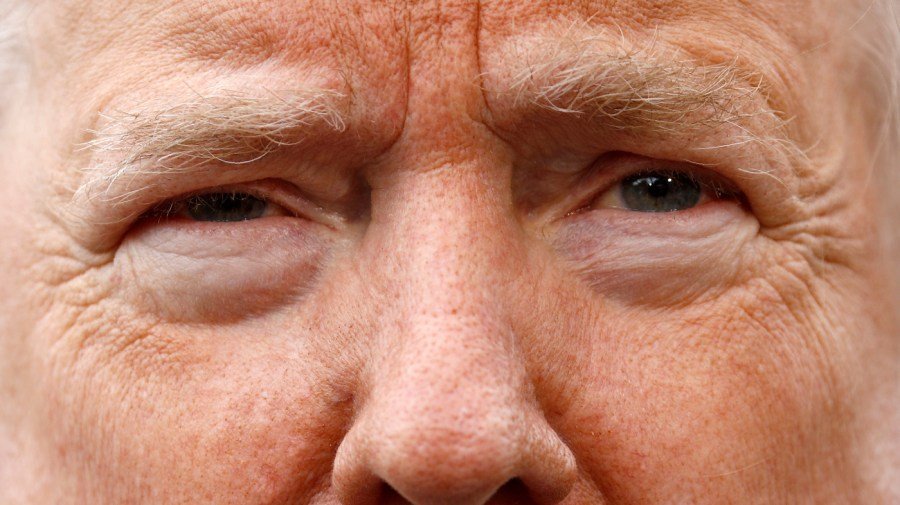Ever since Donald Trump was re-elected, I have been haunted by a passage in Machiavelli’s “The Prince.”
“Whoever becomes the master of a city accustomed to freedom, and does not destroy it, may expect to be destroyed himself; because, when there is a rebellion, such a city justifies itself by calling on the name of liberty and its ancient institutions, never forgotten despite the passing of time and the benefits received from the new ruler.”
Trump intuitively grasps this. Now “master of a city accustomed to freedom,” he is determined to destroy it before it destroys him.
The president-elect’s Cabinet nominations make this clear. They include individuals who will hunt down immigrants with the goal of expelling them (by the millions), others who will politicize the military and compromise U.S. intelligence, still others who will gut and weaponize the Department of Justice, and an entitled anti-vaxxer who will undercut many of the agencies that protect our health. In addition, his energy policies will exacerbate rather than mitigate the ravages of climate change.
Finally, Trump’s creation of a new office — the Department of Government Efficiency, led by two untethered billionaires — will shred scores of programs on which the American people rely.
In short, we are watching an assault on American democracy. Our republic is eroding before our eyes. And we have been complicit.
The Senate could have convicted Trump for his efforts to overturn the will of the people in the 2020 election but declined to do so. The Department of Justice could have moved far more quickly to hold him accountable for both this crime and his removal of top-secret documents from the White House when he retreated to Mar-a-Lago in 2021. The Democratic Party could have held a real primary to select a viable candidate to oppose Trump in this year’s election.
Over and over again, we have faltered. And now it is not clear we will have the ability to bring an end to Trump’s relentless attack on our republic — an attack that is happening in plain daylight.
But Machiavelli’s text offers a glimmer of hope. Machiavelli, after all, lived at a similar inflection point in history. Florence, one of the great Renaissance republics, was being transformed into a monarchy even at the moment he was writing. But Machiavelli was not crafting, as many believe, a handbook for princes. To the contrary, throughout the text, he makes it clear that he believes the people can fight to preserve their freedoms.
On this front, it is the second half of the sentence above that matters. Machiavelli was calling on Florentines to remember their freedoms. But we too, some 500 years later, are a people “accustomed to freedom” — and to preserve our freedoms we have the power of “calling upon on the nature of liberty and [our] ancient institutions.”
It is easy to recognize the liberties we are losing and will continue to lose if Trump has his way and is unchecked — as seems likely — by an obsequious Congress. It is urgent that we draw on our own memories of what the U.S., for all its flaws, has been.
We must remember that in our country, before Trump 2.0, the U.S. Senate exercised the right of “advice and consent” when it came to presidential appointments; earlier, too, the president did not enjoy blanket immunity; the office of attorney general was independent of presidential whim; women had the right to control their own bodies; immigrants could not be deported without a hearing; public health policy was determined by science; the right to vote was protected; and there was some progress (though not enough) in the pivot to renewable forms of energy.
Trump knows we have these memories. This is why, driven by his own paranoia, he is seeking to destroy our liberties. He knows that the very institutions he is now attacking (the Justice Department, the Pentagon, the Senate) have the potential to hold him in check. We have to fight back.
“The Prince” is a timely read right now. But Machiavelli understood that reading alone is not enough. What Machiavelli was seeking was an informed people who would fight for their freedoms. More than two centuries later, at the dawn of the age of democratic revolutions, the Enlightenment philosopher Jean-Jacques Rousseau understood this. In “The Social Contract” he observed that Machiavelli, “under the pretense of instructing kings … has taught important lessons to the people. Machiavelli’s ‘Prince’ is a handbook for republicans.”
At the core of this handbook is the idea of liberty. Trump has every reason to fear that the American people, not only remembering but also cherishing this idea, will do everything they can to preserve the institutions that protect their freedoms.
Indeed, since his programs involve stripping away freedoms from nearly all Americans, it is likely that both those who supported him and those who opposed him will join together in this fight.
John Jeffries Martin, a history professor at Duke University, is the author, most recently, of “A Beautiful Ending: The Apocalyptic Imagination and the Making of the Modern World” (Yale, 2022).


